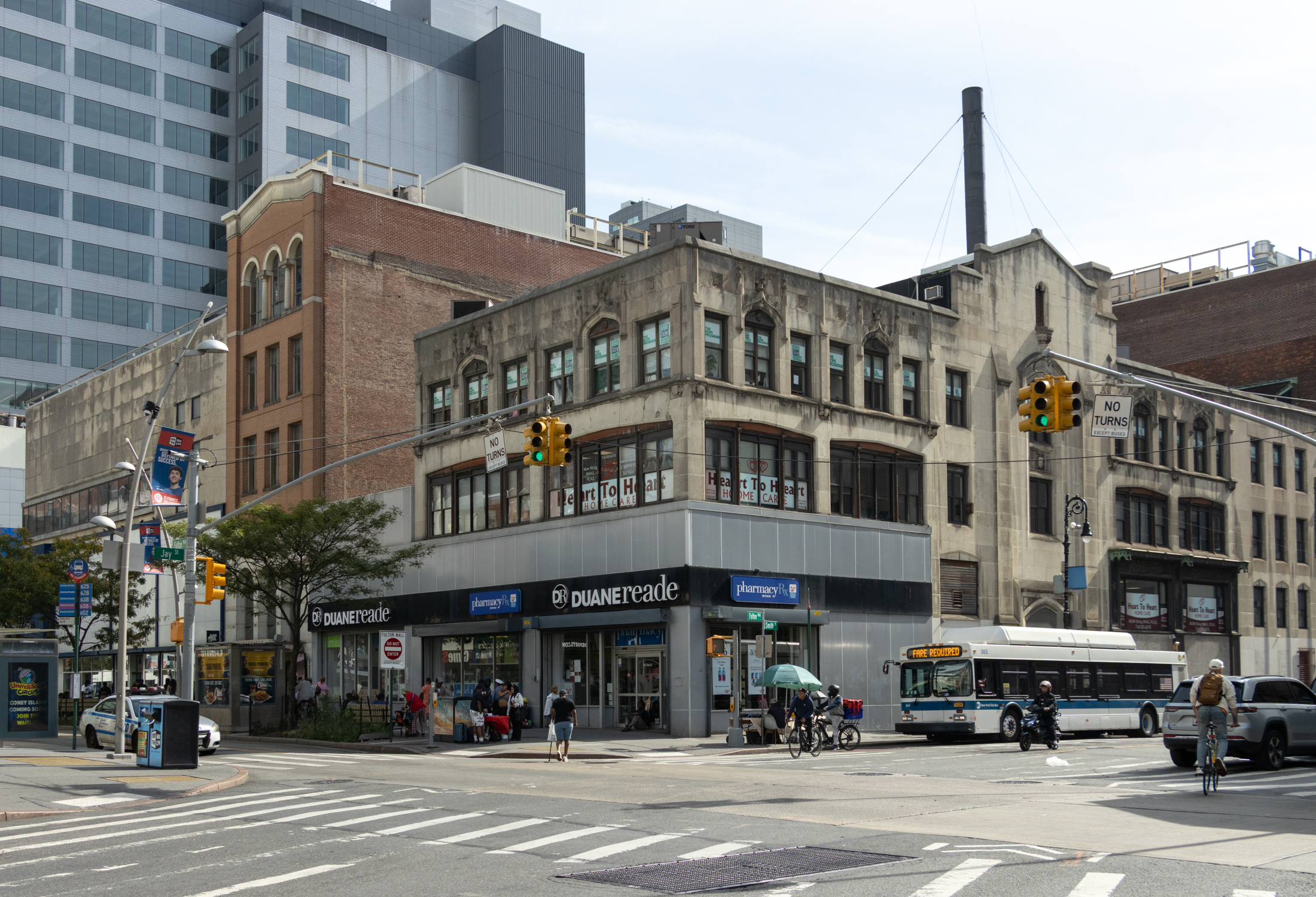You May Ask Yourself, My God What Have I Done
Most of us who have scraped and finnagled our way into our brownstones know the feeling of awe that sets in that first time you’re alone in your house and you think, “Holy Shit!” Colin Harrison describes that moment 20-odd years ago in his essay this week in New York Magazine: We moved into our…

 Most of us who have scraped and finnagled our way into our brownstones know the feeling of awe that sets in that first time you’re alone in your house and you think, “Holy Shit!” Colin Harrison describes that moment 20-odd years ago in his essay this week in New York Magazine:
Most of us who have scraped and finnagled our way into our brownstones know the feeling of awe that sets in that first time you’re alone in your house and you think, “Holy Shit!” Colin Harrison describes that moment 20-odd years ago in his essay this week in New York Magazine:
We moved into our Brooklyn house, a big creaking brownstone in Park Slope. Four floors. Seven bedrooms, three baths. Seven mantels. Walnut detail throughout, never painted. Sure, it needed a little work: They all do. We were deliriously excited. This was our house now? In the hours just after the closing, my wife and I lay on the dusty parquet floor of the empty living room gazing up at the impossibly high ceilings. How would we fill this big house? How would we populate it? What life would we live that otherwise would never occur?
The Deal We Made [NY Magazine]





My sincere thanks to you Anon at 07:35 PM.
That really did shed some light on a few things.
I guess my contention isn’t the mixed emotions of caring for elderly relatives, which I’ve experienced and realize are honest and genuine, its the gleeful hand-wringing and high-fiving of scoring the brownstone with these somewhat ill-gotten gains. A previous poster had it right – how about a home care attendant? I’m sure with the money that came with selling the house, there was plenty for services of that nature. I know because I lived with my infirmed grandmother until she passed away – in our home, where she had an attendant. And believe me, we weren’t rich.
“Most unfortunately, somewhere in the course of all this drama, our marriage which had been slightly challenged before the move and could not withstand the stress of full-time caregving for a loved one with AD, died as well.”
My parents’ 30-year marriage also tanked and ended after they took in (and eventually ended up institutionalizing) my AD-suffering grandmother. Which is how I received my own brooklyn downpayment, after my mother died suddenly (right before the r.e. market shot up) and left me the divorce settlement. And while I love my brownstone, not a day goes by when I’m not aware of the considerable pain and all-around shitty circumstances that made it possible. Not sure what the point of my post is, exactly– maybe, don’t be so quick to judge others’ circumstances and choices. it seems to me that CH, 7:35, and my parents were doing what we’re all doing, trying their best to make a good life for their loved ones and themselves. It doesn’t always work out as hoped despite one’s best efforts, and there are often unintended consequences.
7:35– thank you for your story. And Park Sloper: WORD.
Yes, thank you, Anon at 07:35 PM, for sharing your own story.
Thanks for sharing that.
Park Sloper, you are right on! Thank you for pointing out to the rest of us the value of this confessional piece. In fact, I read every word of this incredible article as a deeply revealing, deeply courageous stab at telling the the not-so-nice truth of what it can mean to be elderly and infirm in America as well as what it can mean to become resident family caregivers in such circumstances.
Truth is, we acquired our own Brooklyn home in very much the same manner as the Harrisons and our resulting storyline is uncannily similar with somewhat even more drastically negative results.
When my aging Auntie, spouseless, childless and living in a Bronx apartment, appeared to be in a seriously deep depression that suggested she should no longer live alone — and no other family members were willing to care for her — my now ex and I made her an offer to buy a house together: her money for the downpayment; our money for the mortgage,taxes, insurance and everything else.
It took us 18 months of searching for just the right kind of reasonably affordable one-family home that also had good looks, a workable lay-out, and was in move-in condition as construction/renovation projects would not be tolerable to an 80+ year old woman).
Well, we did end up finding such a home (in a non-gentrified nabe, btw). However, during the course of this 1 and 1/2 year search, we also discovered that Auntie’s “depression” was something much more serious than age-old decline. Indeed, by the time moving day arrived, Auntie’s condition had been professionally diagnosed as full-blown Alzheimer’s. So, now, with more than just the cost of mortgage, taxes and insurance on this big, beautiful, new house, we also incurred the sky-high costs of Auntie’s full-time home health care until she could be deemed Medicaid eligible for such services (another 18 months).
Early on we learned, however, that the cost of caring for Auntie in our new beautiful home would be more than financial, however. The emotional, physical and pyschological strain and pyschological strain on our entire family was HUGE. (Trust me when I tell you that what the Harrisons described is only the tip of the iceberg.) But we struggled with it as best as we could — not only because we felt in our hearts that we owed it to Auntie to keep her with us, but also because, as many of the posters have commented in discussing the Harrisons: without Auntie’s money, we wouldn’t have had the money to make the downpayment on the house in the first place!
Still, had we known in advance what the true “cost” of this “exchange” would mean, I seriously doubt we would have gone through with it. After less than 3 years of living with us, Auntie’s disease progressed to the point where she could not even remember how to swallow and she needed to have gastric tube inserted for feeding. At that point, she could no longer remain in the family home and she HAD to be transferred to a nursing home. Once that happened, and like Nana, Auntie began the classic cycling back and forth between the nursing home and the hospital until we reluctantly signed a DNR order and she died approximately 10 months later.
Most unfortunately, somewhere in the course of all this drama, our marriage which had been slightly challenged before the move and could not withstand the stress of full-time caregving for a loved one with AD, died as well.
So, today, I have this big beautiful Brooklyn brownstone all to myself, compliments of my dear old, now-deceased Auntie, out-of-the-nest adult children, and a once-married couple’s brilliant idea of a mutually beneficial ” livign exchange.” Woohoo!
For me, this story is a poignant reminder that all that glitters is NOT gold! For those of you who may have rushed to judgment here, rest assured that the Harrisons, and many like them, have probably not laughed all the way to some kind of brownstone home ownership paradise. And, hopefully, if and when you ever arrive at Nana’s or Auntie’s condition in your own life, you will be fortunate enough to be blessed by the greed/compassion and/or stupidity of relatives who will dare to exchange some quality love and caring for you for a bit of your precious money.
That being said, thanks for suffering through my own confessional on this subject. I only hope it may have helped some of you to consider that there really can be many sides to a story.
In any event, blessings of the season to all!
As an earlier poster said, the author brings us into his thought processes and shares his inner conflicts, even those that may not depict him in a particularly flattering light. The same goes for his wife’s incest memoir. The point? Well, what is the point of literature, anyway? Isn’t it, in part, to document thought processes, inner conflicts, outer conflicts, issues, problems, questions, beliefs, etc. and share them with the world? Whether it’s fiction or nonfiction, doesn’t compelling writing make you think about your own life, relate to (or react against) the voice in the story, laugh, cry, rage, revel, turn inward or turn away? Thank god every culture has people who are compelled to write, who NEED to write, who have the guts to bare their souls and say what countless others also believe and experience but would never reveal. For Kathryn Harrison, she probably had to write her memoir to get it out of her system, to experience that catharsis, before she could move on and write other things. As for Colin Harrison’s article, it is particularly timely in today’s New York, with our overheated focus on real estate, as an example of the decisions — and compromises — people make to get a piece of the pie. After all, the title of the article is “The Deal We Made for the Good Life.”
You’re right. Thanks.
I also think it’s crossing the line to post their address, and, Brownstoner, I think it would be appropriate to remove that post. I’ve posted in the past that I think there should be a policy on here not to publish people’s addresses without their consent (despite Harrison’s own — reckless IMO — decision to invite us in to the story of where they live and how they got there).
On another note, I too agree that this is the most confessional couple in literature and wonder what the point is of sharing this particular story and the story of her voluntary incest with her father…Can anyone explain?